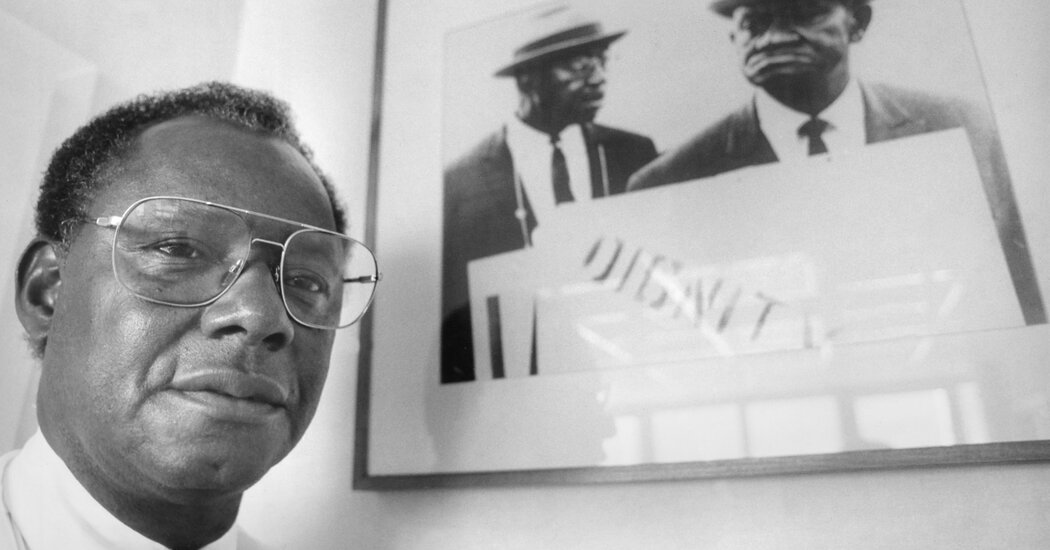
Bill Lucy, a trailblazing Black union leader who fought for civil rights in the American South and against apartheid in South Africa, and who pressured organized labor to address concerns about equal treatment for minority groups, died on Wednesday at his home in Washington. He was 90.
His death was confirmed by his daughter Phyllis Lucy.
Mr. Lucy was not as famous as many other figures in the civil rights movement. But he was instrumental in popularizing a four-word evocation of self-esteem and dignity — “I Am a Man,” which doubled as a demand for respect — that was embraced by striking Memphis sanitation workers in 1968 and evolved into a national hosanna.
He was organizing the workers for the American Federation of State, County and Municipal Employees when he and the Rev. Malcolm Blackburn, the white minister of Clayborn Temple, were brainstorming what message to place on the protest signs the church had promised to print. They then recalled how the Rev. James M. Lawson Jr., another lion of the movement, had defined racism a few days before.
“And finally we came up with four words,” Mr. Lucy said in an interview with the HistoryMakers Digital Archive in 2012.
“While it means different things, I’m sure, to different people,” Mr. Lucy added, “it meant I’m standing up for my rights; I will speak out; I am speaking back to someone who I have historically held fear of; and I’m, I’m confronting the system. And I’m, I’m not asking for a whole lot, just to be treated with respect and dignity. And we didn’t have any idea that this thing would hit like it hit.”
